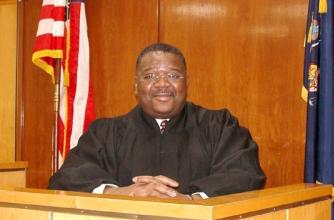BREAKING: Brooklyn judge nullifies LICH closure plan
Justice Baynes' decision could affect Interfaith Medical Center, too

b_judge_baynes.jpg
Supporters of Long Island College Hospital (LICH) celebrated in Cobble Hill on Thursday night after learning that state Supreme Court Justice Johnny Lee Baynes had issued a ruling that throws a wrench into the state Department of Health’s approval of SUNY Downstate’s closing plan for LICH.
Justice Baynes wrote in his 20-page decision that the state’s regulations for closing hospitals were “unconstitutionally vague,” and that DOH did not take the needs of the community into consideration when it approved SUNY Downstate’s plan to close LICH.
His ruling not only affects LICH’s closure plan, but has implications for future closures of hospitals including Interfaith Medical Center in Bedford-Stuyvesant.
